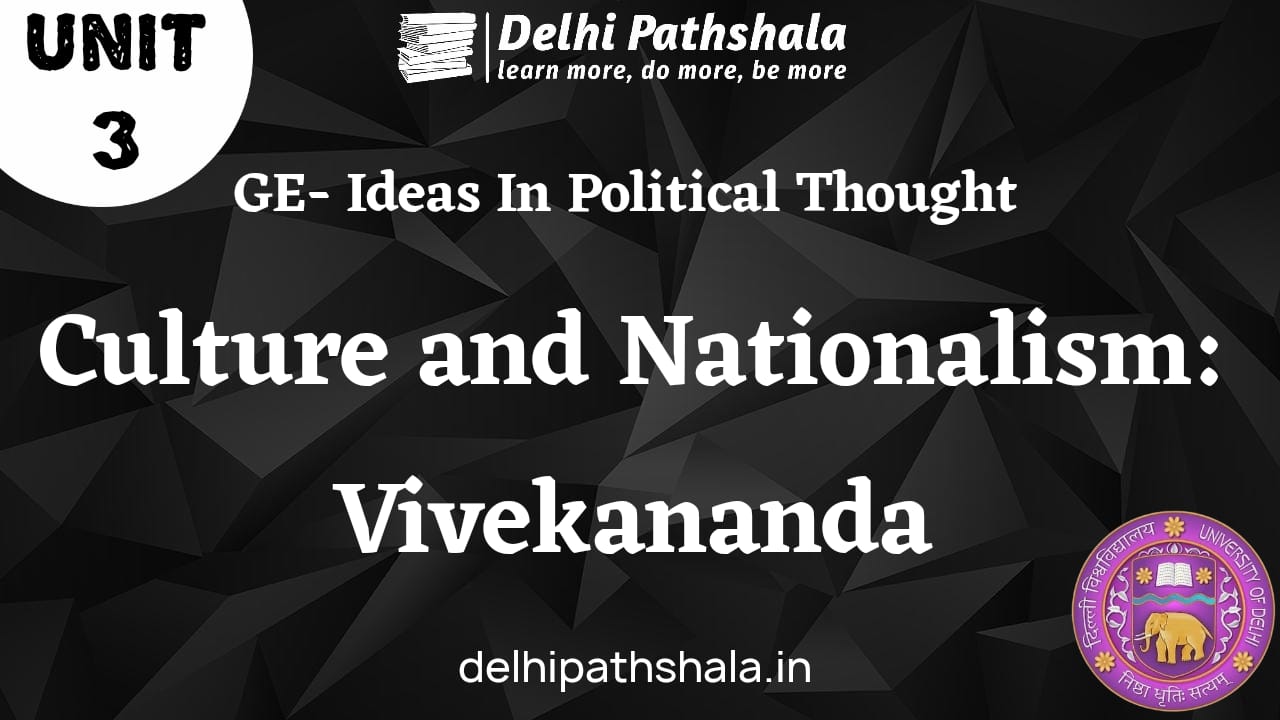Swami Vivekananda (1863–1902) was an important Hindu monk and spiritual leader in India. He helped share Indian ideas about Vedanta and Yoga with the West, especially known for his speech at the Parliament of the World’s Religions in Chicago in 1893. This made him a global representative of Hinduism and Indian spirituality.
Born Narendranath Datta in Calcutta (now Kolkata), India, he was greatly influenced by his teacher, Sri Ramakrishna Paramahansa.
After Ramakrishna died, Vivekananda started the Ramakrishna Math and the Ramakrishna Mission to spread his teacher’s teachings and do charitable work.
Though he did not directly participate in Indian politics, his ideas greatly influenced the Indian nationalist movement.
He taught the importance of understanding oneself, helping others, and the unity of all religions. His thoughts inspired many leaders, including Mahatma Gandhi.
Vivekananda called for a revival of India’s spiritual values and stressed the importance of hard work, education, and self-sufficiency. His teachings encouraged a confident and spiritually aware India that could help the world.
In short, Swami Vivekananda significantly influenced the spiritual and intellectual landscape of India in the late 19th and early 20th centuries.
Even without direct political involvement, his ideas and influence on leaders made a lasting impact on the Indian nationalist movement.
| Related | |
|---|---|
| Integral Humanism: Deen Dayal Upadhyaya (GE) | Savarkar’s concept of Hindutva (GE) |
What were the main themes and ideas of his speeches and writings on culture and nationalism?
Swami Vivekananda’s talks and writings about culture and nationalism showed a deep understanding of India’s spiritual history and his ideas for its future. Here are the main points he focused on:
1. Spiritual Unity:

Vivekananda believed all religions are connected and lead to the same truth. He thought this unity is key for a united nation.
2. Personal Growth:
He highlighted the need for people to grow spiritually and understand themselves. He felt a strong nation comes from strong individuals and encouraged self-improvement.
3. Value of Work:
Vivekananda valued all types of work and thought that spirituality should go hand in hand with practical efforts. He believed a nation grows when both spiritual and material needs are met.
4. Education:
He saw education as vital for society’s progress. He wanted a system that builds knowledge as well as moral and spiritual values.
5. Helping Others:
Vivekananda promoted selfless service to people in need. He believed true nationalism means caring for others and working for the common good.
6. Cultural Pride:
He encouraged Indians to be proud of their culture. He believed understanding India’s ancient wisdom could help solve modern problems.
7. Bravery and Strength:
He urged people to be brave in seeking truth and justice. He thought a nation should be strong in both spirit and material matters to tackle modern challenges.
8. Unity in Diversity:
Vivekananda wanted different cultures and communities in India to come together. He believed this unity is important for the nation’s success.
9. Global Peace:
He had a worldwide vision while being rooted in Indian culture. He saw India as a nation that could share its spiritual wisdom for the benefit of the whole world.
These ideas shaped Vivekananda’s vision for India’s cultural and national growth. His thoughts continue to inspire people in India and globally, influencing talks on spirituality, culture, and nationalism.
| Related | |
|---|---|
| Nyaya: Ambedkar (GE) | What is Gandhi’s concept of Swaraj: Gandhi’s Perspective |
How did he interpret and reinterpret the concepts of Hinduism, Vedanta, and spirituality for the modern world?
Swami Vivekananda played an important role in explaining Hinduism, Vedanta, and spirituality for today’s world. He understood ancient Indian ideas deeply and wanted to share them in a way that connected with modern challenges and hopes. Here are some key points of his ideas:
1. Universalism of Vedanta:

– Vivekananda highlighted that Vedanta is open to everyone, not just one group. He said its teachings apply to all people and bring together all religions.
2. Concept of God:
– He gave a modern view of God in Hinduism, saying God is formless, everywhere, and not limited to certain beliefs. This idea helps people from different religions connect with spirituality.
3. Religious Tolerance and Harmony:

– Vivekananda supported the idea of accepting all religions. He saw them as different paths leading to the same spiritual goal and encouraged understanding among different faiths.
4. Practical Spirituality:
– He believed spirituality should be practical and used in daily life, not just understood in theory. His teachings encouraged helping others and living ethically.
5. Synthesis of Science and Spirituality:
– Vivekananda wanted to connect science with spirituality. He thought that real science and true religion work well together and help us understand life better.
6. Individual Empowerment:
– His view of Hinduism focused on empowering each person. He believed everyone has a divine nature and should develop it through discipline, meditation, and good behavior.
7. Relevance of Ancient Wisdom:
– While promoting modern thinking, he also recognized the value of ancient Indian teachings. He thought the wisdom of the Vedas and Upanishads could still help with today’s problems.
8. Social Service and Compassion:
– Vivekananda emphasized the importance of helping others and being compassionate. He believed true spirituality shows in caring for those in need.
In short, Swami Vivekananda aimed to make Hinduism and spirituality understandable and relevant to modern life. His teachings continue to inspire people who want to balance spiritual values with today’s challenges.
| Related | |
|---|---|
| Gender: Tarabai Shinde | Dharma and Danda Kautilya |
What was the impact and significance of his work for the Indian cultural and national identity?
Swami Vivekananda greatly influenced India’s culture and identity, leaving a lasting mark that still affects the country today. Here are some key points about his contributions:
1. Cultural Pride:
Vivekananda helped people in India feel proud of their rich culture and traditions, encouraging them to appreciate their history.
2. Spiritual Awakening:
He focused on spiritual values from Hinduism, inspiring many to seek spiritual growth and include these values in their lives.
3. Unity:
Vivekananda wanted India to be united, despite its many differences. He taught that diversity should be embraced, shaping a more inclusive Indian identity.
4. Nationalism:
While not a politician, his ideas laid the groundwork for the Indian independence movement, promoting self-reliance and service to others.
5. Influence on Leaders:
His teachings impacted leaders like Mahatma Gandhi and Subhas Chandra Bose, guiding them in their fight for freedom and justice.
6. Education:
Vivekananda stressed the importance of education for personal and national growth, leading to reforms and the establishment of institutions like the Ramakrishna Mission.
7. Global Attention
His speeches abroad helped highlight India’s spiritual wisdom, creating a positive view of India on the world stage.
8. Service:
The Ramakrishna Mission, which he founded, is involved in social work, education, and healthcare, shaping India’s social landscape.
9. Religious Harmony:
Vivekananda promoted respect among different religions, helping communities coexist peacefully.
In summary, Swami Vivekananda’s work significantly shaped India’s culture and identity, influencing the independence movement and the values of modern India. His ideas continue to inspire people today.



“दिल्ली पाठशाला” के अंतर्गत प्रस्तुत इन लेखों का प्रभाव “गागर में सागर” के समान है। ज्ञानवर्धन के साथ ही ये संक्षिप्त लेख विभिन्न परीक्षाओं के लिए भी अत्यंत सहायक हैं। इन सामग्रियों को पढ़ने के बाद मैं एक छोटी सी टिप्पणी देने को विवश हो गया।
जय हिन्द!